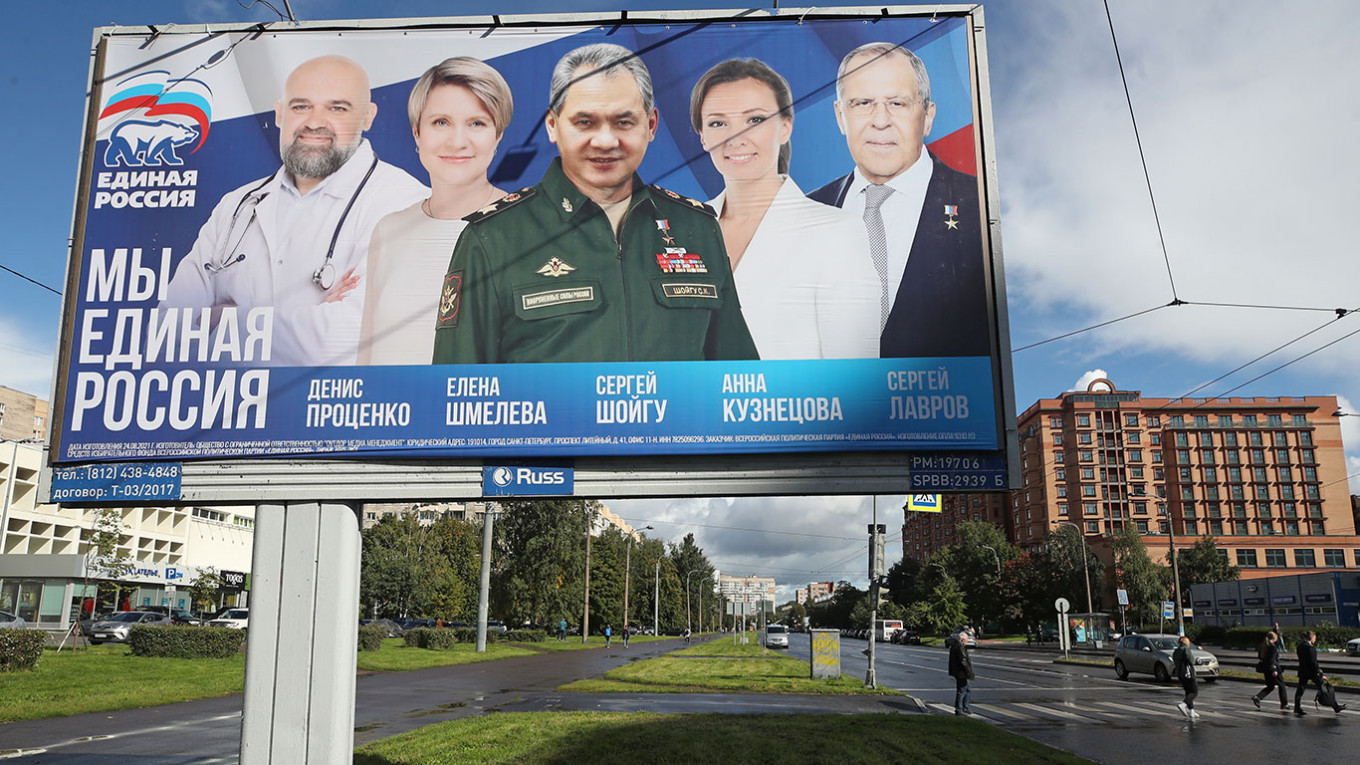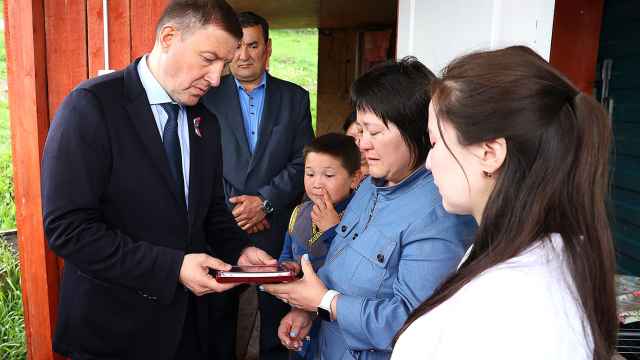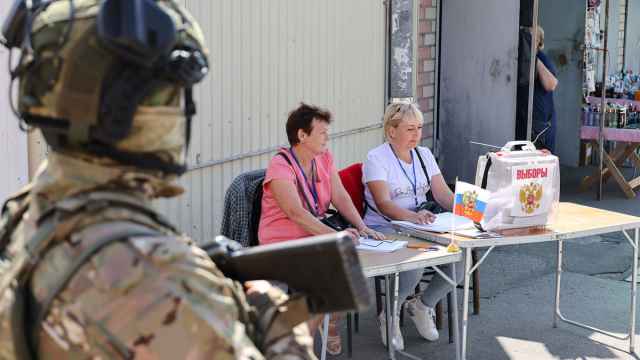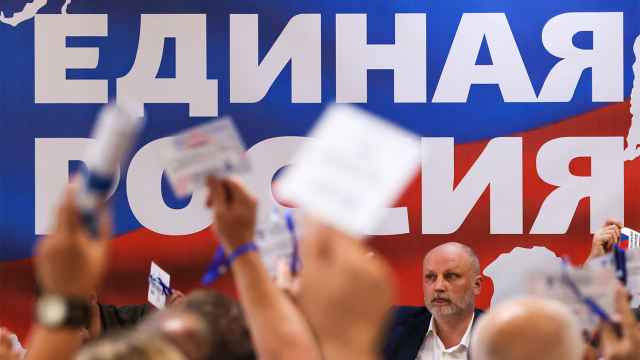Candidates who topped the electoral lists of Russia's ruling party in this month's legislative elections will not take their seats in parliament, officials said on Wednesday.
The announcement prompted opposition figures to accuse the Kremlin of duping voters, on top of allegations of widespread electoral fraud.
On Wednesday, the Central Election Commission said four of the five candidates who headed the list of President Vladimir Putin's United Russia party would not be serving as deputies.
"They are not on a list of lawmakers," a commission spokeswoman told AFP.
The ruling party turned to popular figures including Foreign Minister Sergei Lavrov, 71, and Defense Minister Sergei Shoigu, 66, to head its list, as pre-election polls saw its support as low as 30%.
The figures asked to take part in the campaign also included a popular doctor in charge of Moscow's main Covid-19 hospital, who has become a symbol of Russia's fight against the coronavirus.
The doctor, Denis Protsenko, initially refused the nomination, but after a call from President Vladimir Putin, the 45-year-old took part in the campaign.
Of the five, only the children's rights ombudsman Anna Kuznetsova will take up a seat in parliament's lower house, the State Duma.
Activist Elena Shmelyova, who heads a popular children's center, will also give up her mandate.
The team of jailed Kremlin critic Alexei Navalny said it was "clear from the very beginning" that prominent figures were on the unpopular United Russia election list only to boost support and "cheat voters."
"United Russia is spinning voters a line to remain in power," Navalny's team said on Telegram.
United Russia claimed a two-thirds majority in the lower house after a massive crackdown on the opposition. Kremlin critics have accused the authorities of mass voter fraud.
Official results gave United Russia 49.8% of the vote, down from 54.2% in the last parliamentary election in 2016.
Critics say online voting, new limits on election observers, and the polls being spread over three days — a move officials said was to reduce coronavirus risks — all presented opportunities for fraud.
A Message from The Moscow Times:
Dear readers,
We are facing unprecedented challenges. Russia's Prosecutor General's Office has designated The Moscow Times as an "undesirable" organization, criminalizing our work and putting our staff at risk of prosecution. This follows our earlier unjust labeling as a "foreign agent."
These actions are direct attempts to silence independent journalism in Russia. The authorities claim our work "discredits the decisions of the Russian leadership." We see things differently: we strive to provide accurate, unbiased reporting on Russia.
We, the journalists of The Moscow Times, refuse to be silenced. But to continue our work, we need your help.
Your support, no matter how small, makes a world of difference. If you can, please support us monthly starting from just $2. It's quick to set up, and every contribution makes a significant impact.
By supporting The Moscow Times, you're defending open, independent journalism in the face of repression. Thank you for standing with us.
Remind me later.






